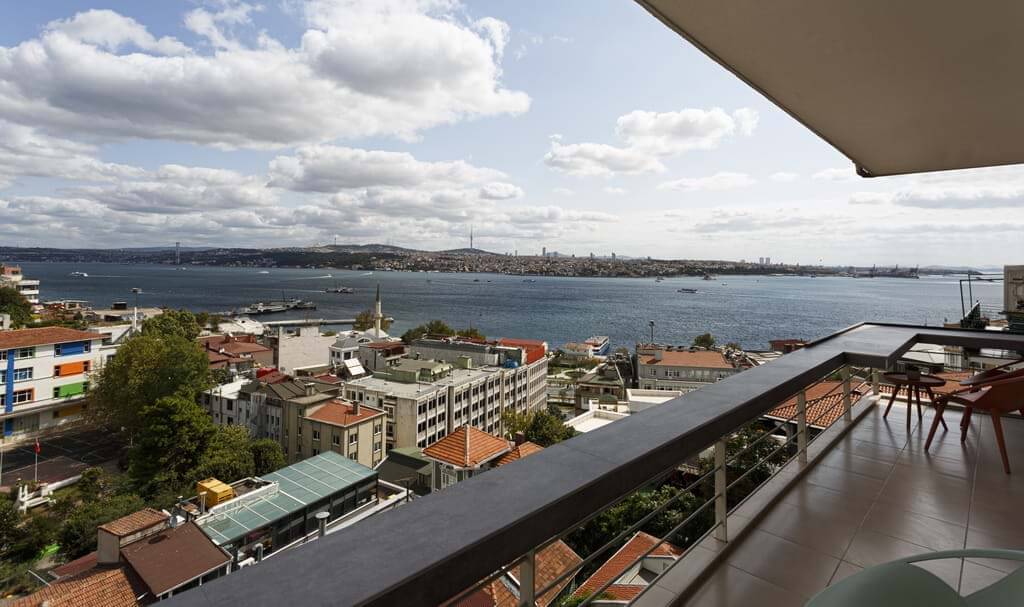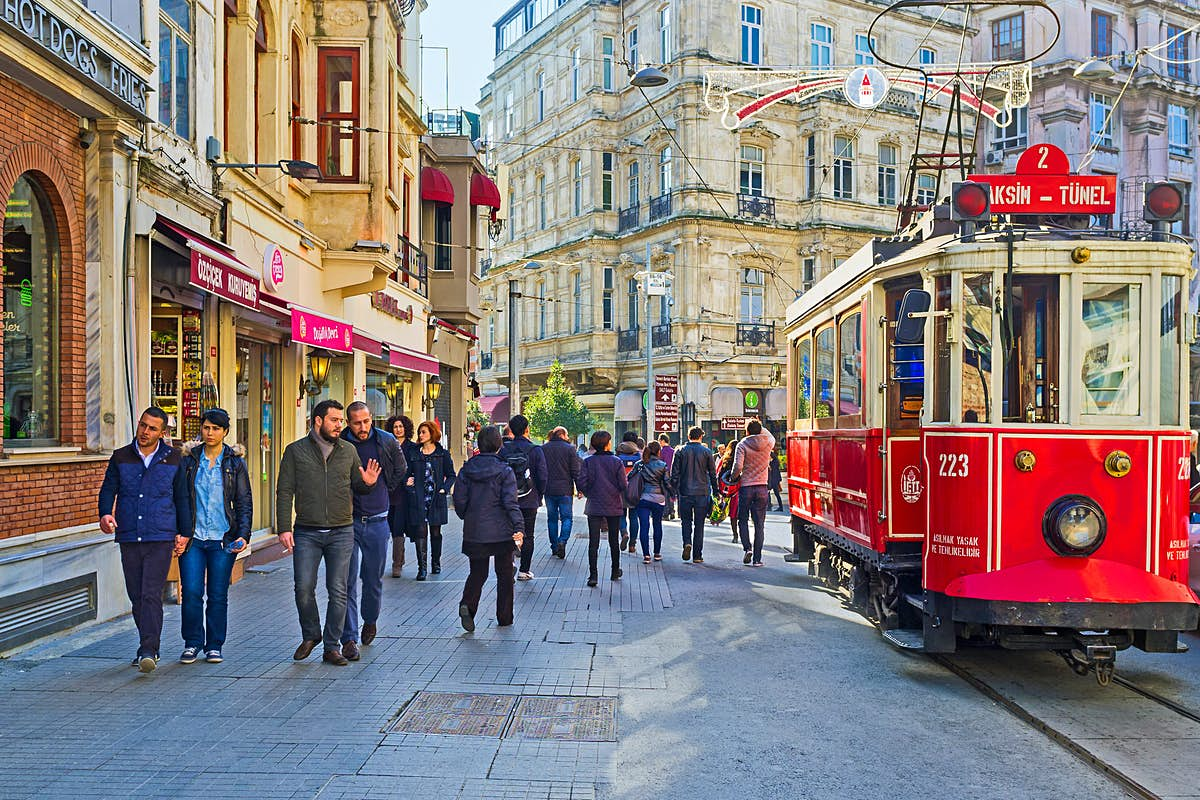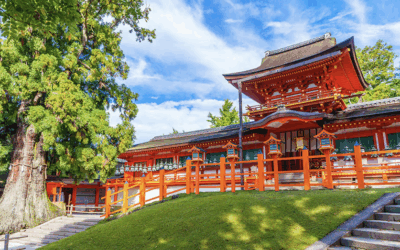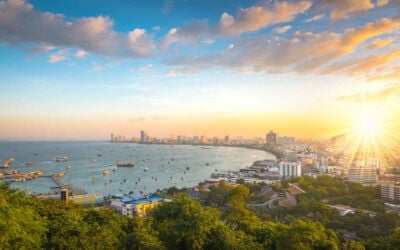Last updated May 23rd, 2025.
Foreigners are buying Turkish real estate more than ever. Home values in Istanbul are still among Asia’s lowest and the government is actively encouraging property investment.
Is it possible these foreign investors are making a mistake though?
With housing prices at around just US$2,000 per square meter in Istanbul, is Turkish real estate investment too good of a deal to be true?
There are indeed many positive aspects to investing in Turkey’s property market. A strategic location bridging between Europe and Asia makes the country an ideal regional business hub.
Real estate values in major Turkish cities like Istanbul, Ankara, and Izmir aren’t merely cheap… but investing here will also open a path to citizenship and obtaining a second passport.
Turkey’s appeal is evident between its low housing costs and citizenship by investment (CBI) program. Still, you should consider the drawbacks of any major decision.
In this article, we’ll discuss how you can become a Turkish citizen by investment, property taxes, real estate prices in Turkey, and perhaps most important: the nation’s rather dire economic issues that you should consider.
Invest in Turkish Property, Get a Free Passport
While not all countries in Asia allow foreigners to own property on their soil, Turkey allows non-citizens to buy land, condos, and other types of real estate in on a freehold basis.
The government is actively encouraging foreigners to invest in Turkey through their citizenship by investment program.
Turkey’s citizenship by investment program is one of the biggest draws to buying real estate here.
Purchasing a condo, house, or any other type of property in the country that’s worth at least US$400,000 can lead to Turkish citizenship almost immediately.
You’ll essentially get a free second passport included in the deal with your investment property in Turkey.

Spending the minimum US$400,000 required to get Turkish citizenship will afford you a rather large apartment or luxury condo in Istanbul with Bosphorus views. It seems like a great place to live, but does it make a good investment?
When Turkey first started its citizenship by investment program, you had to purchase a property valued at US$1 million or above.
Soon after, the minimum dropped to a much more reasonable US$250,000 before they raised it again to US$400,000.
Ever since the minimum investment was originally lowered, Turkey’s citizenship program has become very popular. It’s now competitive with other CBI and Golden Visa programs in the region including Portugal and Malta.
And if getting citizenship along with a second passport is your ultimate goal, you don’t necessarily have to buy property in Turkey.
Turkey’s citizenship by investment program includes two other options outside of real estate: opening a bank deposit or contributing capital to a business in Turkey.
Note that the investment required for those two options is US$500,000 which is double the amount required as a real estate investor.
Cost of Property Taxes in Turkey
There are multiple property taxes you’ll need to pay if you invest in Turkish real estate. The purchasing tax, or title deed tax, is a rather substantial 4% of its sale price. Normally it’s split with half paid by the buyer while the seller pays the remaining 2%.
VAT, or value-added tax, is also applied to real estate in Turkey. Commercial properties have a VAT tax of 18%. Meanwhile, residential properties have a smaller VAT tax that can range from 1% to 18% but is generally on the lower end of that scale.
Foreign investors have the option of waiving the VAT tax if they meet specific conditions, such as agreeing to not sell the property for at least a year.
You’re also required to pay annual property taxes in Turkey. They’re cheaper than in most other countries, ranging from 0.1% to 0.6% of the home’s total appraised value.
Nonetheless, yearly property taxes in Turkey are an ongoing cost that you should think about before investing here.
How Much Are Real Estate Prices in Turkey?
Before you buy real estate in Turkey, or make any investment for that matter, you should consider several questions.
Is the cost of buying a house in Turkey worth the money? Are rental yields high enough? In the future, will it appreciate or decline in value?
We don’t have a crystal ball that will predict the future with 100% accuracy, but you can look at other factors and get a solid idea of what Turkey’s economy will perform.
One thing to consider is the value of the Turkish lira compared to other currencies. During the past decade, the lira fell from 1.50 against the US dollar to about 30.
That’s a decline of over 2000%! Hyperinflation is a huge worry for the future of Turkey’s real estate market and the nation’s economy as a whole.
A steadily depreciating lira has made Istanbul, Turkey one of the world’s cheapest major cities to invest in real estate.
In fact, anyone buying Turkish property market benefits from one of the least expensive real estate markets in Asia. That’s despite its status as an upper middle-income nation.
Istanbul is the largest city in the country with nearly 20% of Turkey’s total population residing here. You can buy a property in Turkey, such as a renovated apartment in Istanbul’s city center for a low price of only US$2,000 USD per square meter.
Compare that to US$6,000 per square meter in Moscow, or US$3,000 in Belgrade, and Istanbul property values might seem like a wonderful deal at first glance.
As with anywhere else, Istanbul’s real estate prices vary based on the property’s location. The European side of Istanbul is more expensive than on the Asian side.
You’ll normally find Istanbul’s cheapest properties in the Esenyurt district along the city’s far western suburbs.
Meanwhile, the most expensive neighborhoods in Istanbul are Nisantasi and Besiktas both of which are prime locations in the city center. Buying a condo or house in these areas might set you back above US$5,000 per square meter – about double the average.
The question is: whether by renting or eventually selling, will you make a return on your investment in Turkish property?
Turkey’s Economic Pitfalls: A Deal-Killer?
Turkey is a relatively wealthy nation and ranks high on the human development index. That said, while it’s not a “third world country” by any means, the Turkish economy isn’t in its prime either.
Unfortunately, the lira is in free-fall. There’s no end in sight to the currency’s rapid and ongoing depreciation.
Keep in mind that when you buy real estate in any country, you aren’t just investing in a physical structure or plot of land. You’re also making a bet on the future of its currency – and the lira isn’t worth gambling on.
Turkey’s corporate debt levels are over 70% of the country’s GDP. Much of this debt is owed in US dollars, not Turkish lira.
Yet due to the lira’s depreciating value, the amount of lira they’ll need to pay off their debt is increasing in terms of local currency.
It’s a bad sign for anyone investing in Turkish real estate. Housing prices in Turkey might seem cheap, although its value is decreasing in terms of international currency alongside the Turkish lira’s.
Meanwhile, recent presidential elections gave Erdogan a large degree of power and he controls nearly all aspects of Turkey, including major financial decisions related to the nation’s economy.
President Erdogan isn’t a banker or an economist though, and he held an unconventional view that high interest rates lead to inflation.
Until recently, he was insistent that interest rates must be lowered, despite disastrous effects that a loose monetary policy would have on the lira. Erdogan even fired central bank chiefs and finance ministers if they’re reluctant to lower interest rates.
Turkey suffers from one of the world’s biggest trade deficits as well – above US$50 billion to be precise. The nation’s industrial sector can’t easily compete on price or quality with countries in East Asia.
Simply put, Turkey doesn’t have a competitive manufacturing industry like Thailand or China does – especially compared to its imports.
Thus, on top of all its other concerns, Turkey lacks the flexibility needed to manage an economic crisis. It’s one huge problem with making an investment here.
Should You Buy Property in Turkey?
Your first impression might be that real estate in Turkey is a good deal. Despite low prices and relatively high rental yields around the 5% range, there’s large degree of risk though.
It’s likely that you’ll end up losing money rather than achieving a return on your property investment in Turkey due to the lira’s declining value.
Don’t expect your net yields to approach 5% in reality either. Vacancy rates are generally high in Turkey, so after deducting repairs, damages, and the fact that your house won’t have a tenant all the time, expect lower yields.
Not to mention you’ll get paid in terms of Turkish lira. The rental income will cover local costs, although it’s increasingly getting devalued within a global context.
Regardless, Turkey offers one of the most attractive citizenships by investment programs in the region. Don’t let us stop you if your main goal is to buy a house in Istanbul to spend part of the year or obtain a second passport.
If having another passport is your top priority instead of profit, then real estate in Turkey may be worth it.
In conclusion: buying property in Turkey is a decent choice if you’re looking to get dual citizenship. Just as long as making sub-optimal returns compared to other alternatives in the region isn’t a deal breaker for you.
FAQs: Real Estate in Turkey
Can Foreigners Invest in Turkey Property?
Yes, Turkey allows foreigners to purchase property on a freehold basis, including land, condos, and houses. This makes it one of the more accessible property markets in Asia for non-citizens.
Additionally, Turkey’s government actively encourages foreign investment through its citizenship by investment (CBI) program.
How Does Turkey’s Citizenship by Investment Program Work?
Foreign investors can obtain Turkish citizenship by purchasing property worth at least US$400,000. This investment can include a luxury condo or a large apartment in Istanbul.
Aside from real estate, investors can also qualify by depositing US$500,000 in a Turkish bank or contributing the same amount to a business in Turkey. However, the real estate option requires a lower minimum investment, making it a popular choice.
What Are the Risks of Investing in Turkish Real Estate?
The primary risks of Turkey's real estate market include:
- Currency Depreciation: The Turkish lira has steadily declined in value, losing over 2000% against the US dollar in the past decade, which can erode returns for foreign investors.
- Economic Instability: Turkey faces high corporate debt levels, trade deficits, and an unconventional monetary policy under President Erdogan.
- Vacancy Rates: High vacancy rates and ongoing property maintenance costs could lower rental yields, especially since rental income is paid in the devaluing lira.
Is Buying Property in Turkey a Good Investment?
Investing in Turkish real estate is ideal if your primary goal is obtaining Turkish citizenship or a second passport. However, it may not be a wise financial investment due to the lira’s depreciation, ongoing economic challenges, and high vacancy rates.
Overall, while Turkey's property market offers affordable prices and attractive rental yields, returns may fall short compared to alternative markets in the region.







